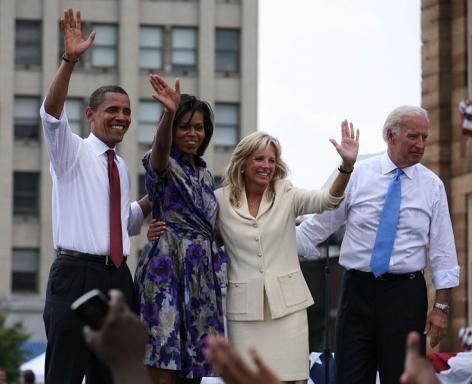

"Those who don't know history are destined to repeat it." - Edmund Burke (1729-1797)
Watching Bill Moyers’ Journal tonight on PBS brought this famous quote to mind. (http://www.pbs.org/moyers/journal/11202009/watch.html) Moyers recounts President Lyndon Johnson’s agonizing deliberations and decision to escalate the Vietnam War. The story is heartbreaking, especially in retrospect. We know now that the cost of that war damaged the United States for decades and generations. The pain of the massive loss of American and Vietnamese life is felt to this day. The program shows that Johnson was under tremendous pressure and that the decisions made were based on the perceived realities of the day. There is no way to watch and hear LBJ try to avoid escalation while being goaded by Republicans to enlarge the war, even to use atomic bombs against the North, without feeling his pain. His decisions seem somehow inevitable. But we now know they shouldn’t have been. They destroyed his Presidency and led to his decision not to run for re-election in 1968. President Johnson was aware that the war stifled his domestic agenda and regretted not being able to do more at home. What would his re-election in 1968 have accomplished if he had been a viable candidate in that election? Where would the Great Society have gone? For instance, would universal health care have followed the creation of Medicare and Medicaid? It seems a natural progression that was interrupted by the events of history.
The thought that has me feeling depressed is that you cannot watch the Moyers program without clearly seeing the parallels between Vietnam in the sixties and Afghanistan today. Like LBJ, President Obama inherited a war that was not of his making. Like LBJ, President Obama is being advised by the military that he needs to go in big for a win. Like LBJ, President Obama seems to be looking for another course of action. Like LBJ, President Obama faces tremendous political pressure by the Republicans and some in his own party to escalate the war. President Johnson feared he could not be re-elected or govern as a strong President if he was painted as weak by his opponents. We can clearly see that Johnson’s flawed conclusions were disastrous for the country and for his political future. The lives of countless Americans were devastated by his decisions made under terrible circumstances.
President Obama is clearly trying to find better choices in Afghanistan. But is he strong enough and wise enough to do so? The anti-war forces of the 60s and 70s were massive and included many voices of reason including lots of soldiers who returned and spoke out against the futility of trying to prop up a weak and corrupt government half way around the world. But it took years for those forces to finally become strong enough to sway President Nixon to withdraw. Where is the massive anti-war sentiment today? Where are the numbers that can give President Obama political cover to buck the Pentagon and the Republicans and refuse to escalate?
On October 27th the Washington Post reported that Matthew Hoh resigned from the Foreign Service in Afghanistan where he was the senior U.S. civilian in Zabul province, a Taliban hotbed. (http://newstrust.net/stories/
Days later, on November 11th, the Washington Post reported that Ambassador Eikenberry sent two classified cables to Washington expressing deep concerns about sending additional troops to Afghanistan. (http://www.washingtonpost.com/
With the voices of these two influential men questioning the course the Pentagon is proposing, where are the public protests demanding an end to the war? Will enough voices of dissent be heard before it is too late? There is so little time left.
President Obama’s decision on an altered course for the nearly eight year old war in Afghanistan may well lead us down the same path that LBJ followed in South East Asia. Or perhaps he will prove himself to be strong enough to stand up to the generals and steer a better course. President Kennedy did during the Cuban Missile crisis in 1962. Many have argued that his assignation only 13 months later was related but we will probably never know if that is true.
President Obama clearly knows history. How will our history effect his decision?

